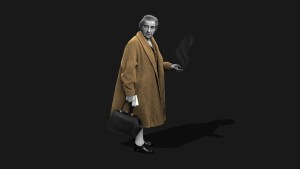By Thomas Hodd

Mary Melville, The Psychic:
A Critical Edition
Mary Melville, The Psychic (1900) is an extraordinary Canadian cultural artifact. Written by first-wave feminist, psychical researcher, and suffrage leader Flora MacDonald (Merrill) Denison (1867-1921), this significant yet hitherto-undervalued text bears witness to a transformative and vibrant period in Canada’s social, literary and religious history. Based on the life of Denison’s older sister, Mary Merrill, Mary Melville is the story of an alternative New Woman figure, a gifted young scholar with psychical abilities from small-town Ontario, whose promising life is cut short by a world not yet ready for her message or her powers.
Scant historical information exists about Mary’s life. Born in 1858, Mary, like Flora, had an aptitude for intellectual pursuits. In 1876, she graduated from Alexandra College, the Ladies’ Wing of Belleville’s Albert College, with high honours in mathematics. She also appears to have worked as a teacher after graduation, although no published materials about Mary’s life discuss the four years between her graduation and death. In fact, little else is known about Mary, with the exception of two areas: her interest in spiritualism and the circumstances surrounding her death. Mary’s ties to spiritualism are not surprising, given Belleville’s long-standing history with the movement: the Fox Sisters, arguably the founders of modern spiritualism, were originally from the Belleville area. Furthermore, in the 1850s one of the sisters, Kate, introduced spiritualism to Susanna Moodie and her husband, who were residents of Belleville during this period; the trio also conducted séances together, although as Stan McMullin points out, to do so was at some social risk given the “rigid religious milieu” of the town at the time.1 Nor did the town’s penchant for spiritualism escape controversy: witness the infamous case of New York medium Dr. Henry Slade, who was invited to Belleville in the summer of 1882, then purportedly outed as a fraud by the town’s police chief.





 In March, 1969, a then 70-year old Golda Meir came out of retirement to serve as Israeli Prime Minister following the sudden death of Levi Eshkol. The country’s first female Prime Minister, Meir was dubbed the ‘Iron Lady’ of the Middle East. During her five years in office, Israel experienced several events that continue to influence public opinion and policy, including the
In March, 1969, a then 70-year old Golda Meir came out of retirement to serve as Israeli Prime Minister following the sudden death of Levi Eshkol. The country’s first female Prime Minister, Meir was dubbed the ‘Iron Lady’ of the Middle East. During her five years in office, Israel experienced several events that continue to influence public opinion and policy, including the 
